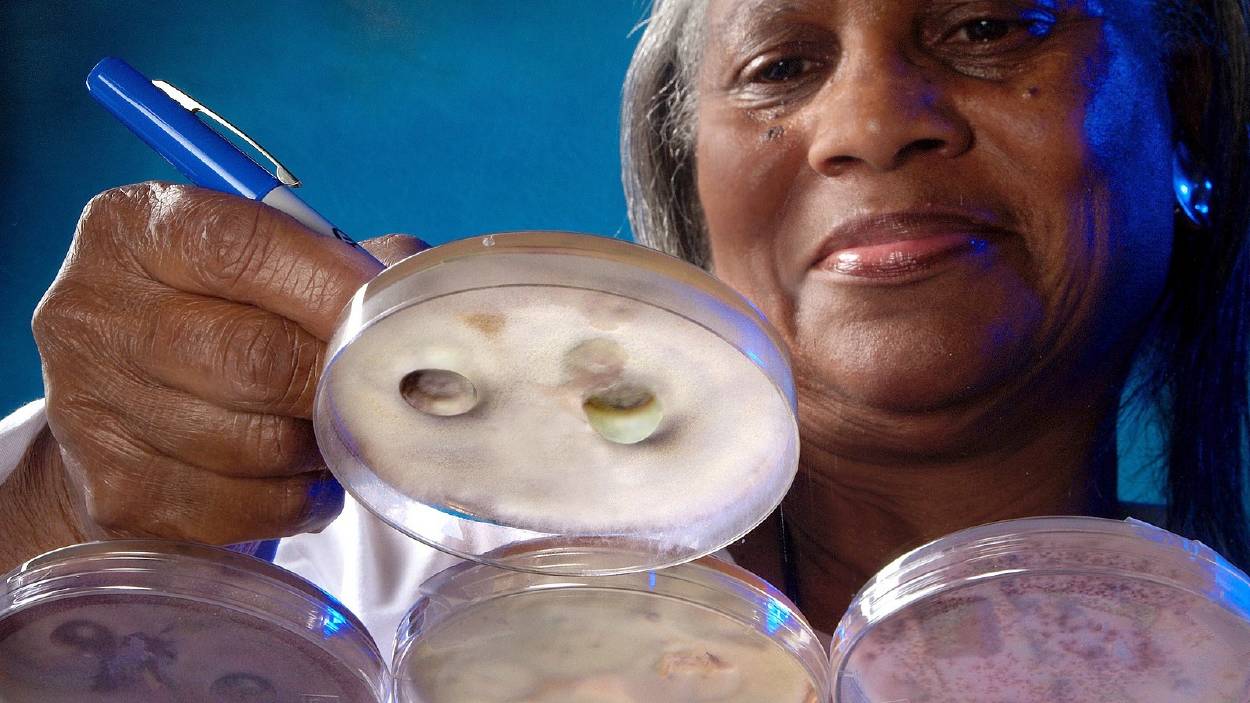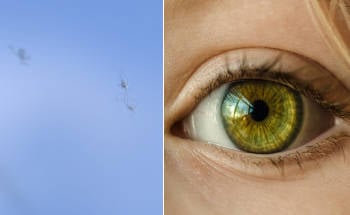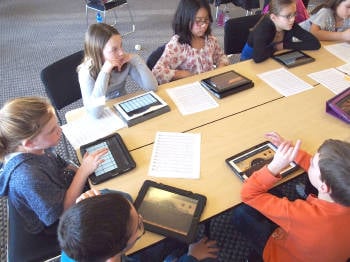
Bibliografía relevante a la salud ocular en el contexto de COVID-19
Una colección bibliográfica de artículos y publicaciones académicas y científicas relevantes a la serie de artículos "Efectos directos del coronavirus en la visión".
Autores: Diego López Alcón, OD, Francisco Lara Ph.D., OD, Rosa Salmerón Campillo OD, Vicente Fernández-Sánchez, OD, Norberto López-Gil Ph.D.
Revisado por: José Manuel González-Meíjome y Gonzalo Carracedo.
Índice de contenidos
- Introducción
- ¿Puedo seguir usando lentes de contacto?)
- ¿Qué precauciones debemos esperar si vamos a una óptica?
- ¿Cómo puede afectar el aprendizaje on-line en la visión de mis hijos?
- ¿Qué hacer para prevenir el desarrollo de miopía de los niños durante el confinamiento?
- Bibliografía (el artículo presente
Bibliografía
1. World health Organization. Report of the WHO-China Joint Mission on Coronavirus Disease 2019 (COVID-19) [Internet]. 2020. Disponible en: https://www.who.int/docs/defaultsource/coronaviruse/who-china-joint-mission-on-covid-19-final-report.pdf
2. US Centre for Disease Control and Prevention. How COVID-19 Spreads. https://www.cdc.gov/coronavirus/2019-ncov/about/transmission.html
3. European Centre for Disease Prevention and Control. Q & A on COVID-19. https://www.ecdc.europa.eu/en/novel-coronavirus-china/questions-answers.
4. Otter, J.A., Donskey, C., Yezli, S., Douthwaite, S., Goldenberg, S.D., and Weber, D.J. Transmission of SARS and MERS coronaviruses and influenza virus in healthcare settings: the possible role of dry surface contamination. J Hosp Infect. 2016; 92: 235–250.
5. World Health Organization. Infection prevention and control during health care when novel coronavirus (nCoV) infection is suspected. https://www.who.int/publications-detail/infection-prevention-and-control-during-health-care-when-novel-coronavirus-(ncov)-infection-is-suspected-20200125
6. Kampfm G., Todt D., Pfaender S., Steinmann E. Persistence of coronaviruses on inanimate surfaces and their inactivation with biocidal agents. Journal of Hospital Infection 104 (2020) 246-251.
7. Seah I, Agrawal R. Can the Coronavirus Disease 2019 (COVID-19) Affect the Eyes? A Review of Coronaviruses and Ocular Implications in Humans and Animals. Ocular Immunology and Inflammation. 2020; 16:1-5.
8. Yu Jun IS, Anderson DE, Zheng Kang AE, Wang L-F, Rao P, Young BE, Lye DC, Agrawal R, Assessing Viral Shedding and Infectivity of Tears in Coronavirus Disease 2019 (COVID-19) Patients, Ophthalmology (2020).
9. Xia J, Tong J, Liu M, Shen Y, Guo D. Evaluation of coronavirus in tears and conjunctival secretions of patients with SARS-CoV-2 infection. J Med Virol. 2020;1–6.
10. Special Notice COVID-19 Protections for Contact Lens Wearers – March 2020. Top Contact Lens Experts Dispel Misinformation Regarding Coronavirus / COVID-19 Protections for Contact Lens Wearers. https://iacle.org/special-notice-march-2020/
11. Hung LS. The SARS epidemic in Hong Kong: what lessons have we learned? J R Soc Med [Internet]. agosto de 2003;96(8):374-8. Disponible en: https://www.ncbi.nlm.nih.gov/pmc/articles/PMC539564/
12. Fabrizio Zeri, Shehzad A. Naroo. Contact lens practice in the time of COVID-19. CONTACT LENS AND ANTERIOR EYE. MARCH 2020.
13. Lian KY, Napper G, Stapleton FJ, Kiely PM. Infection control guidelines for optometrists 2016. Clin Exp Optom. 2017;100(4):341-356.
14. Lai THT. Stepping up infection control measures in ophthalmology during the novel coronavirus outbreak: an experience from Hong Kong. Graefes Arch Clin Exp Ophthalmol. 2020.
15. IDAE Instituto para la Diversificación y Ahorro de la Energía. Guía Técnica de Eficiencia Energética en Iluminación. Centros docentes. 2001.
16. Recommended light levels - illuminance - for some types of working activities https://www.engineeringtoolbox.com/light-level-rooms-d_708.html
17. Ostrin LA. Objectively Measured Light Exposure in Emmetropic and Myopic Adults. Optom Vis Sci. 2017;94(2):229–38.
18. Ip JM, Saw SM, Rose KA, Morgan IG, Kifley A, Wang JJ, et al. Role of near work in myopia: Findings in a sample of Australian school children. Investig Ophthalmol Vis Sci. 2008;49(7):2903–10.
19. Salmerón-Campillo RM, Jaskulski M, Lara-Cánovas S, González-Méijome JM, López-Gil N. Novel method of remotely monitoring the face-device distance and face illuminance using mobile devices: a pilot study.
20. Jaskulski M. López-Gil N, Liu Y. Measuring the Near Work Distance and Face Illumination Using Personal Mobile Devices. Invest. Ophthalmol. Vis. Sci. 2018;59(9):2152.
21. Kinge B, Midelfart A, Jacobsen G, Rystad J. The influence of near-work on development of myopia among university students. A three-year longitudinal study among engineering students in Norway. Acta Ophthalmol Scand. 2000;78(1):26-9.
22. Rose KA, Morgan IG, Ip J, Kifley A, Huynh S, Smith W, Mitchell P. Outdoor activity reduces the prevalence of myopia in children. Ophthalmology. 2008;115(8):1279-85.
23. Nuevas directrices de la OMS sobre actividad física, sedentarismo y sueño para niños menores de 5 años. Abril, 2019.
24. d’Erceville S. The world of multiple screens: a reality that is affecting users’ vision and posture. Points de Vue. 2015, 72: 38-44.
https://www.pointsdevue.com/article/world-multiple-screens-reality-affecting-users-vision-and-posture
25. Bababekova, Yuliya et al. “Font size and viewing distance of handheld smart phones.” Optometry and vision science : official publication of the American Academy of Optometry 88 7 (2011): 795-7.
26. Reciente de Saw
27. Saw SM, Carkeet A., BappSc Optom Hons, PhD2,2, Kee-Seng Chia, MMed OM, MD1,2, Richard A Stone, MD3,1,2, Donald T.H Tan, FRCS, FRCOphth2,4,2Component dependent risk factors for ocular parameters in Singapore Chinese children. Ophthalmology, 2002, 109, 11, 2065–2071.
28. Kinge B, Midelfart A, Jacobsen G, Rystad J. The influence of near-work on development of myopia among university students. A three-year longitudinal study among engineering students in Norway. Acta Ophthalmol Scand. 2000 Feb;78(1):26-9.
29. Ip J., Saw S.M., Kathryn R., Morgan I., Kifley A., Wamng J.J., Mitchell P. Role of Near Work in Myopia: Findings in a Sample of Australian School Children. IOVS, 2008, 49(7):2903-10.
30. Wu PC, Tsai CL, Wu HL, Yang YH, Kuo HK. Outdoor activity during class recess reduces myopia onset and progression in school children. Ophthalmology. 2013;120:1080–5.
Seguir leyendo
- Introducción
- ¿Puedo seguir usando lentes de contacto?)
- ¿Qué precauciones debemos esperar si vamos a una óptica?
- ¿Cómo puede afectar el aprendizaje on-line en la visión de mis hijos?
- ¿Qué hacer para prevenir el desarrollo de miopía de los niños durante el confinamiento?
- Bibliografía (el artículo presente




